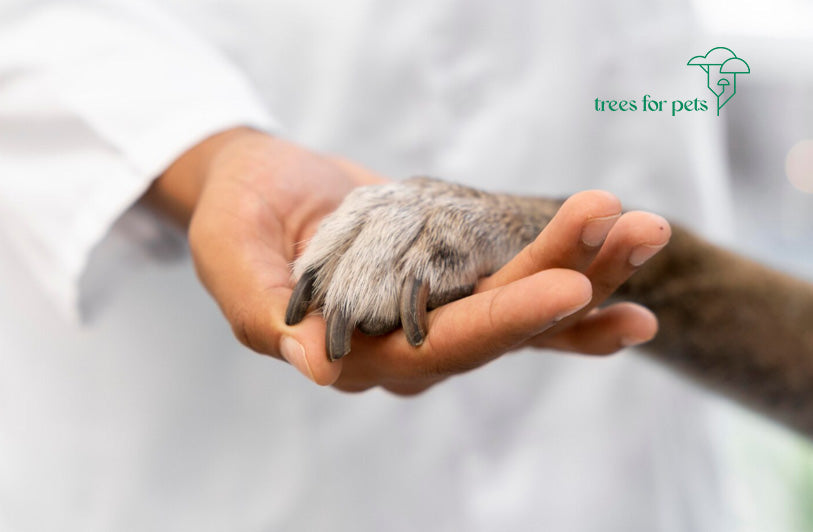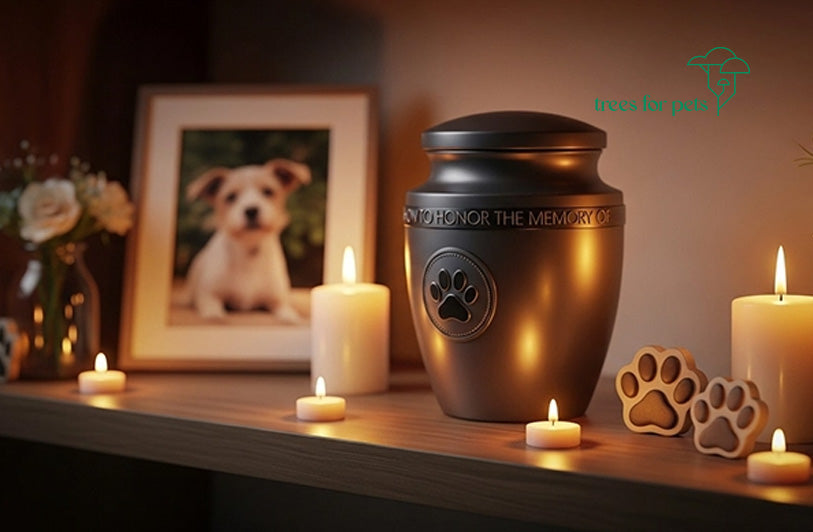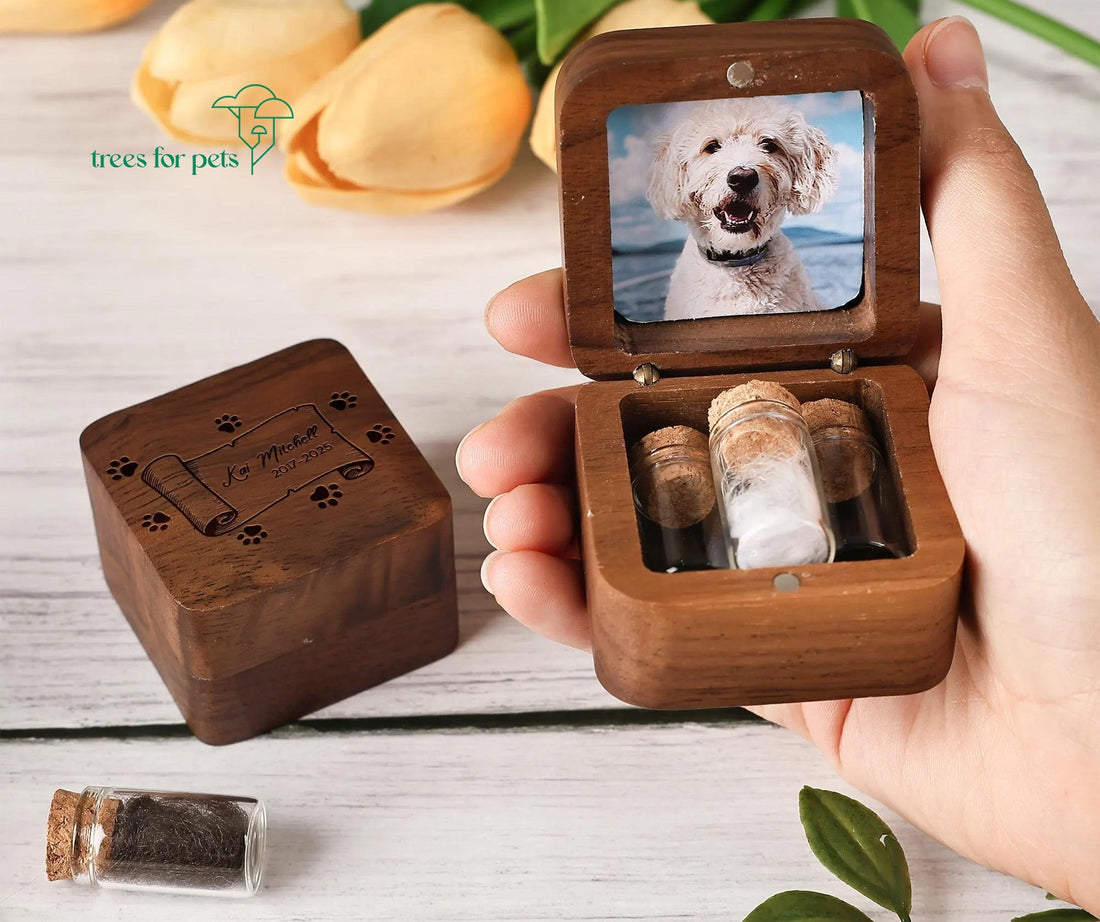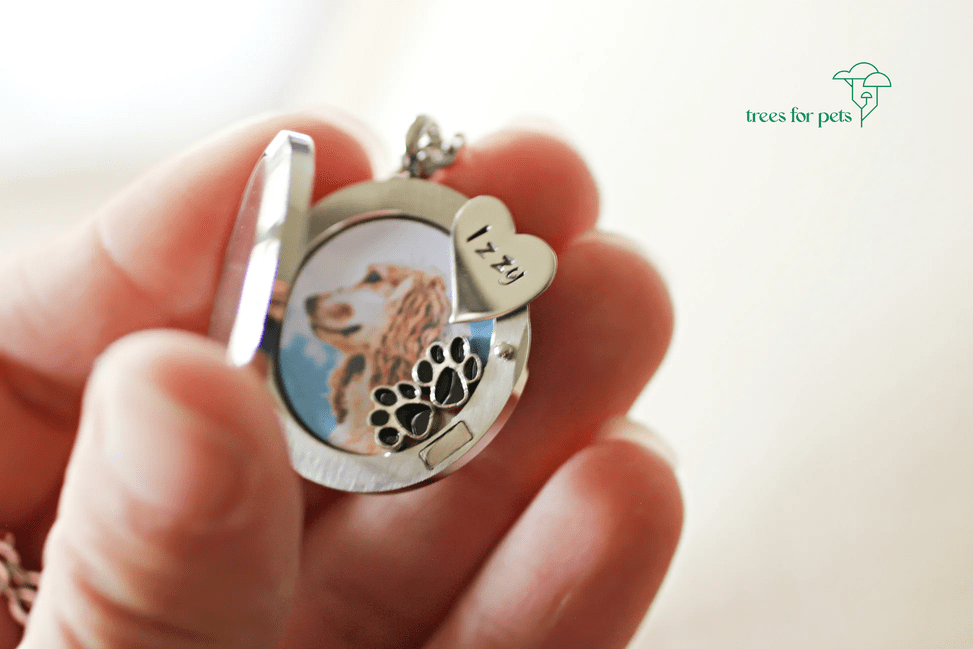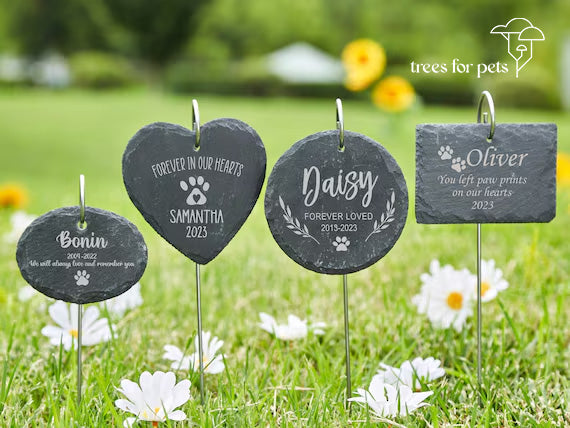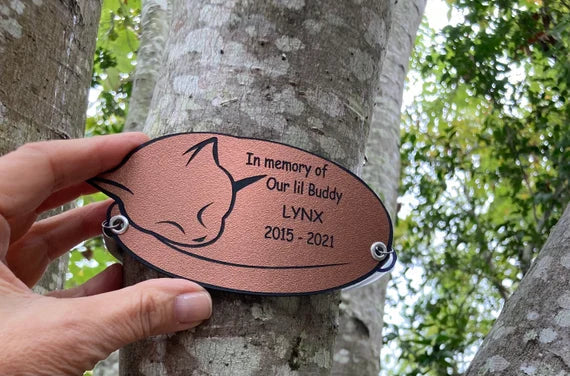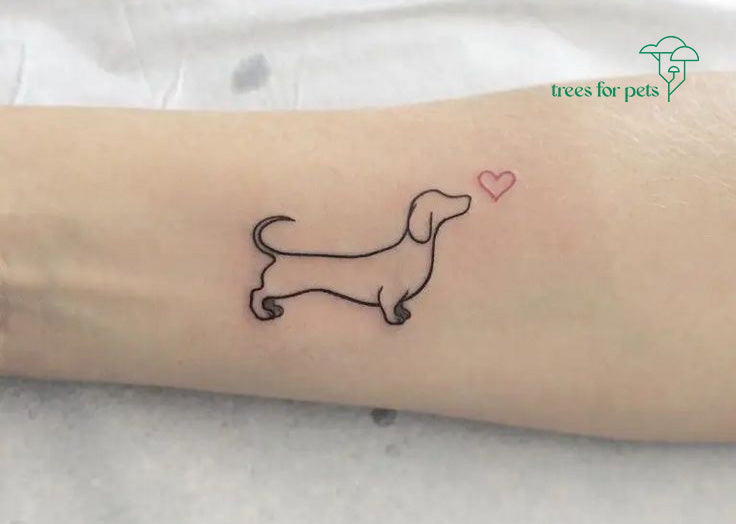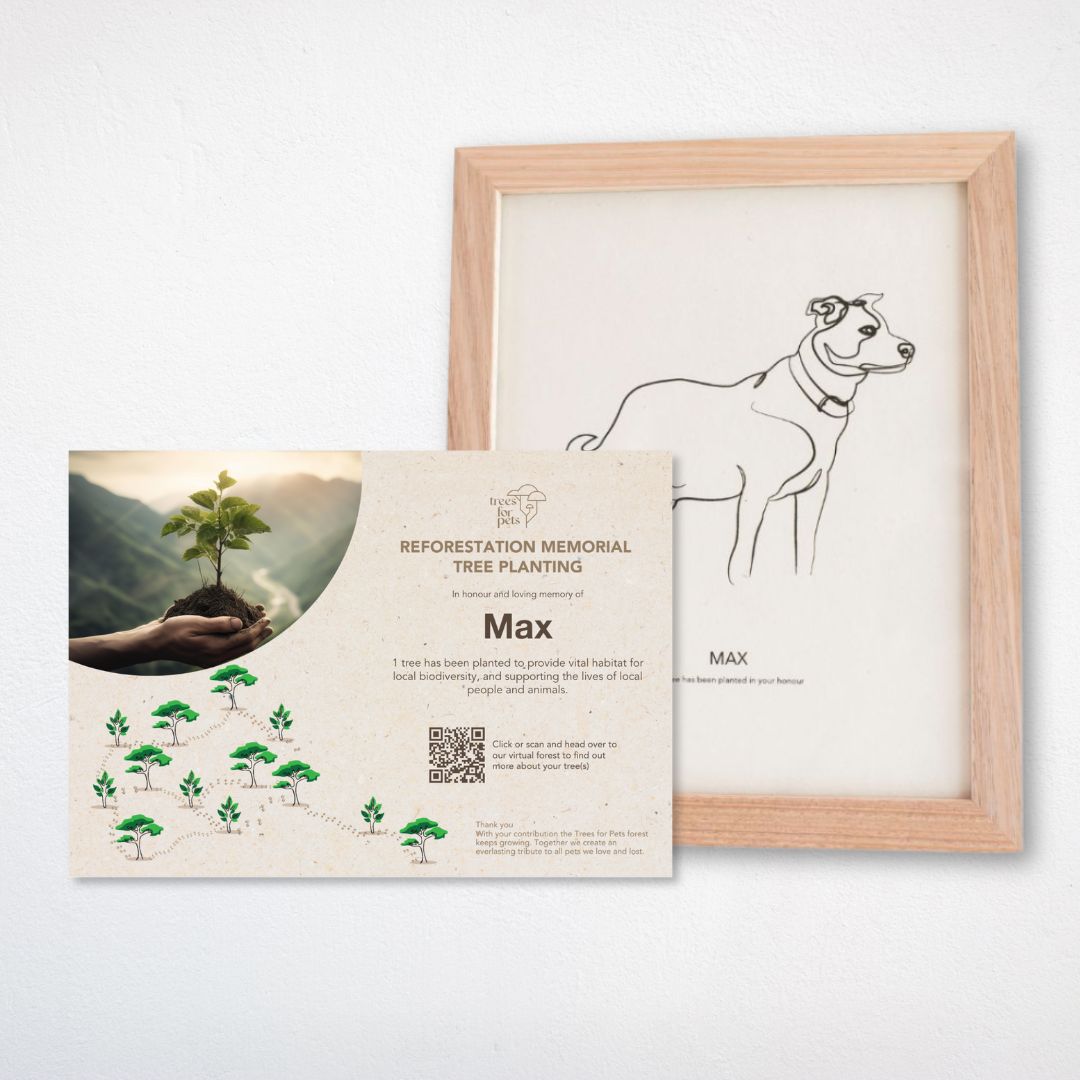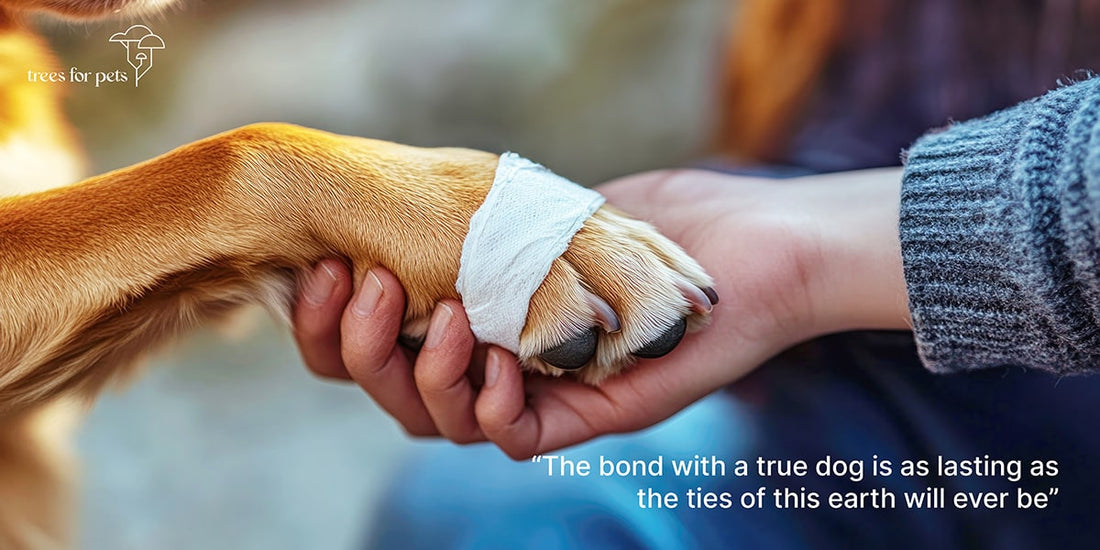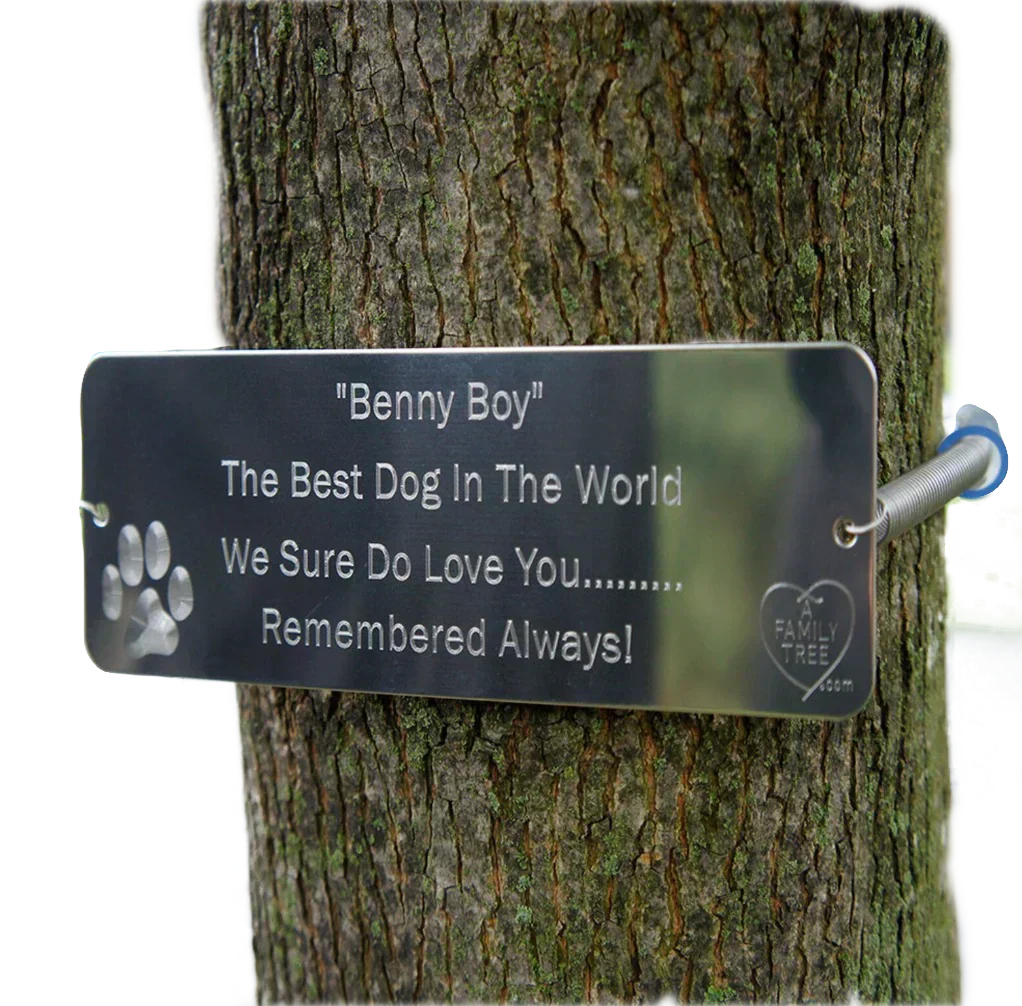Progressive companies recognize that pet loss affects workplace productivity, employee wellbeing, and client relationships just as significantly as other forms of bereavement.
Corporate pet loss support isn't just compassionate—it's strategic business practice that strengthens employee loyalty, client relationships, and company culture.
Here's how businesses can implement meaningful pet loss support programs that demonstrate genuine care while enhancing professional relationships.
The Business Case for Corporate Bereavement Support
Pet ownership statistics make pet loss support a business imperative rather than a nice-to-have benefit.
Workplace Impact Numbers
- 70% of U.S. households include pets, making pet loss inevitable for most employees
- 67% of pet owners consider pets family members, meaning loss affects them like human bereavement
- Pet loss grief lasts 6-18 months on average, affecting long-term workplace performance
- 85% of employees say workplace support during personal crises increases loyalty
- Companies with comprehensive bereavement policies report 23% lower turnover
Financial Benefits
Employee retention: Pet loss support costs significantly less than recruitment and training replacements for employees who leave companies lacking empathetic policies
Productivity maintenance: Supported employees return to full productivity faster than those processing grief without workplace understanding
Client relationship preservation: Pet-owning clients appreciate businesses that understand their loss and offer appropriate support
Competitive advantage: Comprehensive benefits packages including pet loss support attract top talent who value empathetic employers
Types of Corporate Pet Loss Support
Employee Support Programs
Bereavement Leave Policies
- Paid time off for pet loss (typically 1-3 days)
- Flexible work arrangements during acute grief periods
- Option to work from home during initial adjustment
- Extended unpaid leave for complex grief situations
Employee Assistance Programs (EAP)
- Pet loss counseling through existing mental health benefits
- Grief support groups specifically for pet loss
- Resource directories for local pet loss services
- Crisis counseling for traumatic pet loss circumstances
Memorial Gift Programs
- Company-sponsored memorial trees for employee pet losses
- Sympathy flowers or gift baskets for grieving employees
- Memorial donations to animal welfare organizations
- Custom memorial items featuring employee pets
Client Support Programs
Service Provider Initiatives
- Veterinary practices offering memorial trees to client families
- Pet insurance companies including memorial benefits in policies
- Pet cremation services partnering with memorial tree providers
- Pet retail businesses supporting grieving customers
Professional Service Adaptations
- Financial advisors understanding pet-related estate planning needs
- Real estate agents recognizing pet loss housing decisions
- Legal professionals supporting pet custody and memorial planning
- Healthcare providers acknowledging human-animal bond significance

Implementing Memorial Tree Programs
Memorial trees provide particularly meaningful corporate pet loss support because they combine environmental consciousness with personal memorial significance.
Employee Memorial Tree Benefits
Cost-effective support: Plan a tree in memory cost $50-$100, significantly less than other bereavement benefits while providing lasting meaning
Environmental alignment: Supports corporate sustainability goals while providing employee support
Ongoing connection: Employees receive coordinates and certificates providing long-term memorial connection
Customization options: Trees for Pets corporate programs offer personalized certificates with company branding and employee pet names
Client Memorial Tree Programs
Veterinary practice integration: Offer memorial trees as part of end-of-life care services, demonstrating comprehensive compassion
Insurance benefit inclusion: Pet insurance companies can include memorial trees as policy benefits, adding value while supporting grieving families
Retail partnership opportunities: Pet stores can partner with memorial tree providers to offer customers meaningful sympathy options
Explore more Pet Memorial Gifts from Trees for Pets
Corporate Pet Loss Gift Ideas
Immediate Support Gifts (First Week)
Sympathy flower arrangements with pet-friendly plants and pet memorial messaging
Comfort food packages including tea, snacks, and treats for remaining pets
Memorial trees providing positive action during overwhelming grief
Time off certificates formally recognizing need for bereavement leave
Ongoing Support Gifts (Weeks to Months)
Memorial photo frames for workplace desk displays
Custom memorial bookmarks featuring employee pets
Annual memorial tree additions for anniversary dates
Charitable donations to animal welfare organizations in pet's name
Anniversary Recognition (Yearly)
Memorial trees grove expansion for employees with multiple pet losses
Anniversary flowers acknowledging difficult dates
Memorial garden contributions for company outdoor spaces
Pet loss support group sponsorship for ongoing employee wellness
Developing Corporate Pet Loss Policies
Effective corporate pet loss policies require clear guidelines that balance empathy with business needs.
Policy Development Considerations
Defining eligible relationships: Which pets qualify for bereavement support (owned, fostered, family pets)
Leave duration guidelines: How much time off is appropriate for different circumstances
Documentation requirements: What verification, if any, is needed for leave approval
Supervisor training: How managers should respond to employee pet loss disclosure
Resource provision: What support services the company provides vs. refers externally
Sample Policy Language
"[Company] recognizes that pets are beloved family members whose loss significantly impacts employee wellbeing. Employees experiencing pet loss are eligible for [X days] bereavement leave and may access memorial support services through HR. Managers are encouraged to provide flexible work arrangements during employee grief periods while maintaining business continuity."
Implementation Best Practices
Leadership modeling: Executives sharing their own pet loss experiences and using company benefits
Manager training: Supervisors learning to recognize grief signs and offer appropriate support
Resource accessibility: Easy access to memorial services, counseling, and leave policies
Cultural integration: Pet loss support becoming normal part of company compassion rather than exceptional accommodation
Industry-Specific Applications
Veterinary Industry
Comprehensive end-of-life support: Memorial trees offered alongside cremation and burial services
Staff support: Employee programs for veterinary workers processing frequent pet loss exposure
Client education: Resources about grief processing and memorial options
Community outreach: Hosting pet loss support groups and memorial planning workshops
Pet Insurance Industry
Policy benefit enhancement: Memorial trees included as standard or optional policy coverage
Claims process integration: Memorial options offered during end-of-life claims processing
Customer support training: Claims representatives trained in grief-sensitive communication
Partnership development: Relationships with memorial service providers for seamless support

Pet Retail and Services
Customer support programs: Memorial options for long-term clients experiencing pet loss
Staff training: Employees learning to recognize and respond to grieving customers
Community partnerships: Collaborating with local veterinarians and pet loss counselors
Memorial product offerings: Curated selection of meaningful memorial options
General Corporate Applications
Employee wellness integration: Pet loss support as part of comprehensive mental health benefits
Client relationship enhancement: Businesses recognizing when important clients experience pet loss
Community involvement: Sponsoring local pet loss support groups or memorial gardens
Supplier relationships: Working with vendors who understand and support human-animal bonds
Training Staff for Pet Loss Support
Effective corporate pet loss support requires trained staff who understand grief sensitivity and appropriate responses.
Manager Training Components
Recognizing grief signs: How pet loss affects workplace behavior and productivity
Appropriate responses: What to say and avoid when employees disclose pet loss
Resource connection: How to connect employees with available support services
Flexibility implementation: Balancing empathy with business continuity needs
Customer-Facing Staff Training
Grief-sensitive communication: Language that validates loss without minimizing grief
Resource awareness: Knowledge of available memorial services and support options
Boundary management: Professional empathy without overstepping business relationships
Follow-up protocols: Appropriate check-ins and ongoing support offerings
HR Department Specialization
Policy administration: Consistent application of pet loss support policies
Resource coordination: Connections with memorial service providers and grief counselors
Documentation management: Sensitive handling of employee personal information
Program evaluation: Measuring effectiveness and employee satisfaction with support services
Measuring Corporate Pet Loss Program Success
Tracking program effectiveness helps businesses improve support while demonstrating ROI on empathetic policies.
Employee Satisfaction Metrics
- Utilization rates of pet loss support services
- Employee feedback on support adequacy and timing
- Retention rates for employees who receive pet loss support
- Workplace productivity recovery timelines
- Employee referrals and recruitment success related to comprehensive benefits
Client Relationship Metrics
- Client satisfaction scores for businesses offering pet loss support
- Referral rates from clients who received memorial services
- Client retention during difficult life circumstances
- Revenue stability among businesses with empathetic support policies
Business Impact Measurements
- Reduced sick leave usage when pet loss support is available
- Decreased employee turnover during personal crises
- Enhanced company reputation and employer branding
- Competitive advantage in talent recruitment
Cost-Benefit Analysis of Pet Loss Support
Understanding financial implications helps businesses build sustainable pet loss support programs.
Direct Costs
Memorial tree programs: $50-$100 per employee loss
Bereavement leave: 1-3 days salary per affected employee
EAP enhancement: Minimal additional cost for existing mental health benefits
Training and policy development: One-time investment in program implementation
Cost Savings
Reduced turnover: $15,000-$50,000 saved per retained employee
Faster productivity recovery: Weeks of improved performance vs. prolonged grief processing
Reduced absenteeism: Fewer sick days when grief is acknowledged and supported
Enhanced retention: Long-term loyalty from employees who receive support during crises
ROI Calculations
Most businesses see 300-500% ROI on pet loss support programs through:
- Reduced recruitment and training costs
- Maintained client relationships during difficult periods
- Enhanced employee productivity and engagement
- Competitive advantage in talent markets
Future Trends in Corporate Pet Loss Support
Growing recognition of human-animal bonds is driving innovation in workplace pet loss support.
Emerging Trends
Technology integration: Apps and platforms connecting employees with pet loss resources
Preventive support: Wellness programs addressing pet aging and end-of-life planning
Community building: Employee support groups and peer mentorship programs
Environmental integration: Memorial options supporting corporate sustainability goals
Industry Leadership Opportunities
Best practice development: Companies pioneering comprehensive pet loss support models
Vendor partnerships: Collaborating with memorial service providers for employee benefits
Research participation: Contributing to studies on workplace grief support effectiveness
Cultural change leadership: Normalizing pet loss recognition in professional environments
Implementation Timeline and Steps
Rolling out corporate pet loss support requires careful planning and phased implementation.
Phase 1: Policy Development (Month 1)
- Research best practices and legal considerations
- Draft pet loss support policies and procedures
- Identify memorial service providers and partnership opportunities
- Budget for program costs and resource allocation
Phase 2: Training and Preparation (Month 2)
- Train managers and HR staff on policy implementation
- Develop resource materials and communication tools
- Establish partnerships with memorial service providers
- Create internal communication plans for program announcement
Phase 3: Program Launch (Month 3)
- Announce pet loss support program to all employees
- Begin offering memorial services and support options
- Implement bereavement leave and EAP enhancements
- Monitor initial utilization and feedback
Phase 4: Evaluation and Refinement (Months 4-6)
- Gather employee feedback on program effectiveness
- Measure business impact and ROI metrics
- Refine policies and procedures based on early experiences
- Expand successful program elements and adjust ineffective components
The Bottom Line on Corporate Pet Loss Support
Businesses that recognize and support employee and client pet loss demonstrate genuine care while building stronger, more loyal relationships.
Corporate pet loss support isn't just about compassion—it's about understanding that employees and clients are whole people whose personal lives affect professional relationships and business outcomes.
Memorial trees, bereavement policies, and grief support resources cost relatively little while providing significant returns through enhanced loyalty, productivity, and competitive advantage.
Companies that implement thoughtful pet loss support create cultures of empathy that attract top talent, retain valuable employees, and build lasting client relationships based on understanding and care.




